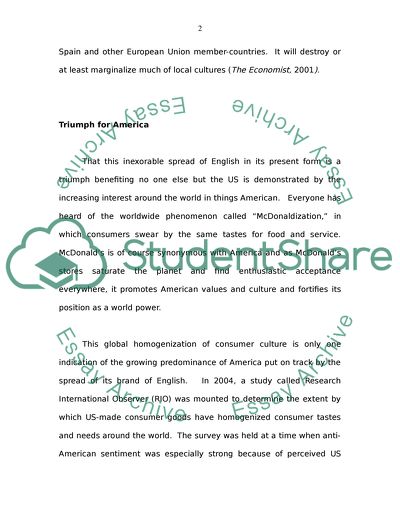Cite this document
(“Spread of English Essay Example | Topics and Well Written Essays - 3000 words”, n.d.)
Spread of English Essay Example | Topics and Well Written Essays - 3000 words. Retrieved from https://studentshare.org/english/1510134-spread-of-english
Spread of English Essay Example | Topics and Well Written Essays - 3000 words. Retrieved from https://studentshare.org/english/1510134-spread-of-english
(Spread of English Essay Example | Topics and Well Written Essays - 3000 Words)
Spread of English Essay Example | Topics and Well Written Essays - 3000 Words. https://studentshare.org/english/1510134-spread-of-english.
Spread of English Essay Example | Topics and Well Written Essays - 3000 Words. https://studentshare.org/english/1510134-spread-of-english.
“Spread of English Essay Example | Topics and Well Written Essays - 3000 Words”, n.d. https://studentshare.org/english/1510134-spread-of-english.


